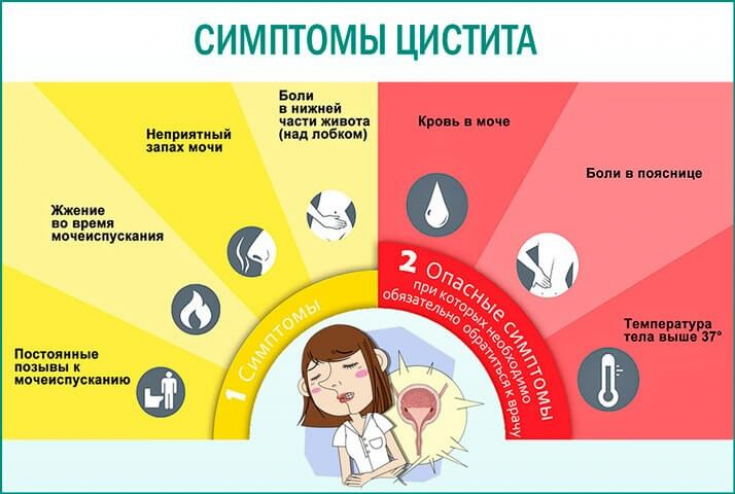Urinary tract infections − one of the most common infectious diseases in general medical and urological practice.
Current protocols recommend that antibacterials be used as first-choice therapy for treatment of urinary tract infections, despite the fact that 80% of cases are uncomplicated and prone to self-spontaneous completion.
Frequent use of antibacterial agents can cause significant damage to the microbiome of the body and is a major cause of the global development of microbial resistance to this class of drugs.
This publication on estet-portal.com talks about modern recommendations for treatment of cystitis as a common manifestation of uncomplicated urinary tract infections.
- Modern tactics of treatment of cystitis
- Drug treatment of cystitis
- Alternative drugs for the treatment of cystitisa
Modern tactics for the treatment of cystitis
The treatment of cystitis is constantly being improved.
Modern recommendations of the European Association of Urology (EAU) propose to abandon the routine prescription of antibiotics, gradually reduce the variety of their choice and timing of use.
Follow us on Instagram!
The problem of antibiotic resistance in the Western world is probably not so acute for our country due to a different mentality: for many years, national practice did not provide for the initial treatment of cystitis with antibiotics due to the available range of uroantiseptics and the wide traditional use of phytotherapy, in particular in monome.
Hypogonadism in men: is it normal to decrease testosterone after 60 years
Drug treatment of cystitis
Nitrofurantoin and pivmecilins may not be available, but Furagin and Nifuratel are first-choice drugs in the treatment of cystitis.
Given that cystitis − a predominantly female disease (in men, urethritis or ureteroprostatitis is more often diagnosed), nifuratel has advantages due to influence on gram-positive flora, Candida albicans, which allows you to simultaneously solve the problem of nonspecific vulvovaginitis and makes nifuratel the drug of the first choice for treatment of cyststa.
Another argument in favor of modern nitrofurans for the treatment of cystitis is the lack of formation of resistance to them over the past decades.
Alternative drugs for the treatment of cystitis
Alternative tactics in the treatment of cystitis − administration of cephalosporins III generation, for example, cefixime, for three days.
Fluoroquinolones are recommended only for male patients or if there is an intracellular pathogen among the etiological factors: Chlamydia trachomatis, Ureaplasma urealyticum, Mycoplasma genitalium.
In these cases, the drug of choice is levofloxacin at a dose of 500 mg for 7 days.

has a separate position due to the negative social attitude towards it, which is not entirely true from the point of view of therapeutic practice. Available practice shows that
fosfomycin trometamolin a single dose of 3 g gives an unstable effect, so it is often used almost exclusively in pregnant women.
Modern features and possibilities of clinical urinalysis In addition, one-day treatment of cystitis is contrary to evidence-based medicine, the drug quickly develops resistance, but the treatment regimen is convenient and fairly common.
Because the long-term use of antibiotics and uroantiseptics for prophylactic purposes is limited, practitioners face difficult choices in assessing the benefits and risks of using synthetic antibacterials for the treatment of cystitis.

can be considered as a compromise solution, however this approach also has certain disadvantages. The main ones are:
insufficient evidence base;
- the lack of standardization of raw materials in most herbal medicines.







Add a comment